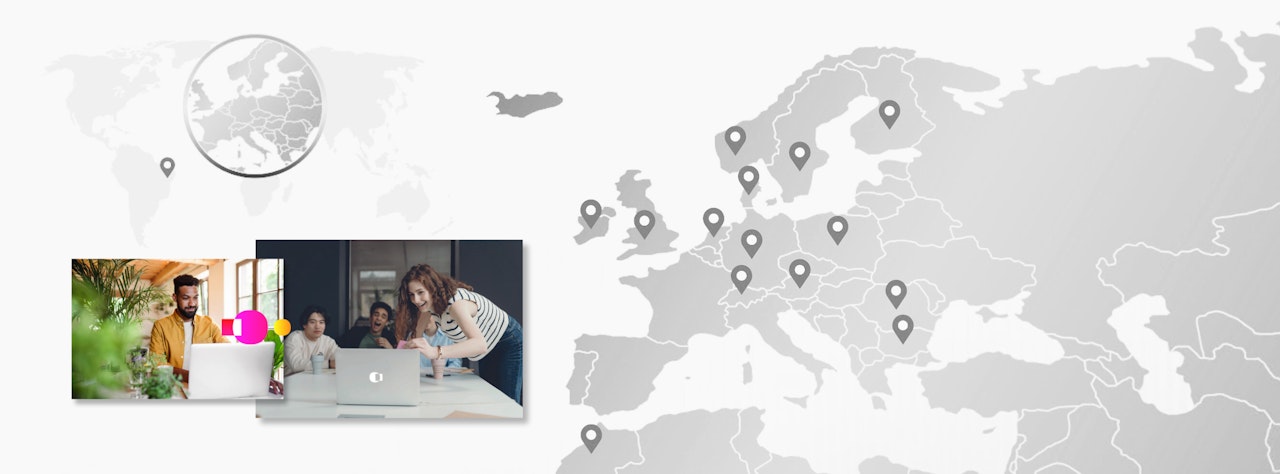Knowledge sharing within organizations - Boost teamwork
Blog

Within organizations there is an enormous amount of knowledge at play. Unfortunately, much of this knowledge is hidden in the heads of qualified employees. The motto "knowledge is power," which makes everyone prefer to keep their knowledge to themselves, is a thing of the past. Today, teamwork is required. So knowledge sharing within organizations today goes beyond the individual.
Can employees share their knowledge with each other in a logical way without neglecting their own work? The general assumption is: no! Knowledge sharing within organizations is far too often costly and ineffective. But is this really the case?
Digital knowledge transfer as a solution
Most of us have problems providing information to the team efficiently. Knowledge about processes is usually requested spontaneously when a problem is discovered or changes are planned. Then the questions come to me as an experienced employee and I have to provide solutions and feedback on all fronts simultaneously.
The IT industry has responded to this problem and brought software to market that allows knowledge about business processes to be captured digitally and made available as needed. But how effective are these systems? Do they help the business and are we employees willing to put in the effort to make information available? Success depends on a number of preconditions.
Easy creation: maintaining knowledge does not cost the "trainer" much time.
Easy access: trainers and participants do not experience obstacles in retrieving the content.
Active learning culture: trainers and participants together maintain knowledge sharing within the organization.
Fast conversion
It is becoming increasingly common to capture knowledge digitally and leave it up to the participant when they request the information ("on-demand"). A company often chooses a platform where I as an employee can convert my material to online courses. Those without experience in creating course materials quickly feel put off by such technical terms. "Convert" - what does that mean? Fortunately, technology is becoming increasingly user-friendly. Today, any layman can run a movie or create a website. Similarly, as an employee, I can become a "trainer" without the need for extensive training. Converting means that I upload a PowerPoint presentation or a PDF document and have it converted into a course structure. Enriched with multimedia and questions, it creates an interactive learning environment with the relevant information.
Low-threshold access
Employees prefer to learn on their own time, so they can easily understand and remember the content. Today, we don't need to memorize every detail. If I know where the information is collected, I can always refer back to it. Employees do need to be willing to call up online training regularly to expand their knowledge level. Therefore, it is essential that the learning environment be intuitive and free of technical barriers.
Moreover, the content must be structured in a user-friendly way. Experts in the field of Learning & Development talk about microlearning: effective learning in small chunks. However, I find it too much to ask as a layperson to have to break down the content into didactically valuable chunks. I prefer to leave it up to the participant to interrupt training sessions when attention spans wane. The key word is on-demand. On-demand is already common in streaming and makes sense in learning as well, as we place increasing emphasis on flexibility and self-determination.
Knowledge sharing within organizations at eye level
Ongoing knowledge sharing within organizations works when there is a culture within the company that allows for feedback and teamwork. It is important to me as a manager that my employees dare to ask questions. Some feel more comfortable if they can do so digitally and I can answer in my own time. But feedback on training is also important to me. Employees appreciate being allowed to contribute to the product. They like to upload appropriate documents and add their own experiences. Especially the younger generations want a sense of teamwork in the company; the common training platform should definitely support this feeling.
Employees in management positions often still find it difficult to give up their "position of authority" and consider their knowledge a common good. However, disclosure of knowledge rarely leads to loss of authority, because it is not so much the accumulated knowledge that qualifies someone for a higher position. Rather, the success of a project is determined by the confident handling of knowledge and the ability of team members to make knowledge-based decisions.
We love to share our knowledge with you
Related blogs



